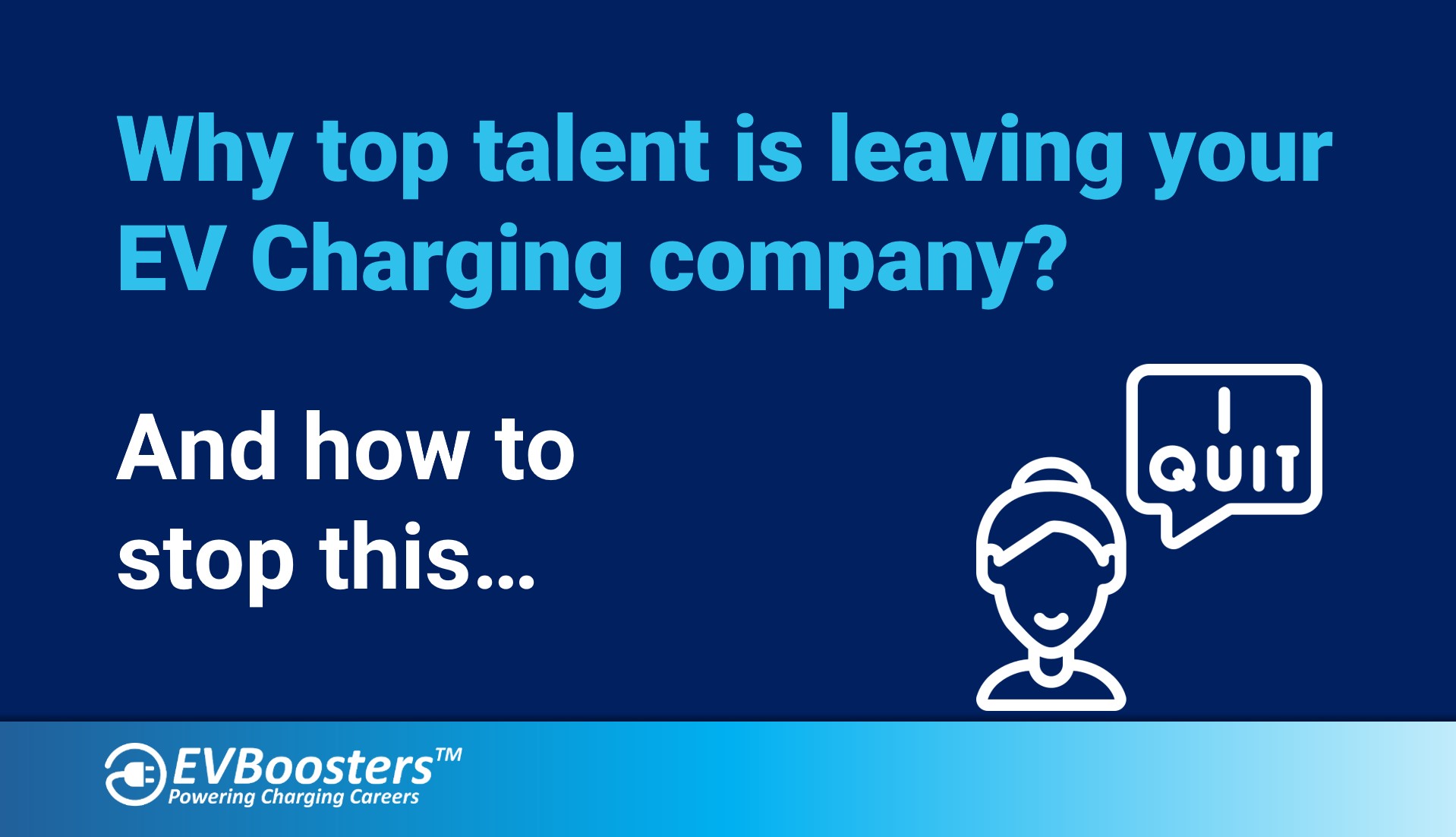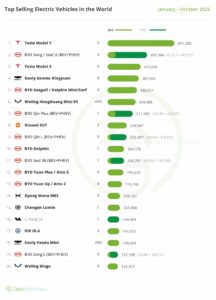20% of the CEO’s in EV Charging left the company in 2024 – Impact of the change of leadership
Leadership turnover further erodes confidence. According to our industry analysis, nearly one in five CEOs in the EV Charging sector changed roles in the past year. Each leadership change introduces new priorities, new teams, and often a reset in organisational vision, leaving employees in a constant state of adaptation.
Meanwhile, the fast-paced environment leaves little room for culture building. In many EV scale-ups, performance and delivery dominate the agenda, while belonging, psychological safety, and connection fall by the wayside. Teams work side-by-side but not together. Feedback is rare, wins are not celebrated, and hybrid work makes social connection even more difficult to maintain. When these elements combine—unclear roles, weak culture, shifting leadership, and a lack of direction—employees begin to disengage. And often, by the time they leave, their sense of disconnection has been building for months.
5 reasons why your best employees leave, besides ‘just more money’?
1. Lack of Recognition: “Nobody notices what I do”
Recognition isn’t about grand gestures. It’s about day-to-day signals that someone’s work matters. Research by Quantum Workplace shows that employees who feel recognised are 2.7 times more likely to be highly engaged. Conversely, when achievements go unnoticed and feedback is transactional, employees feel invisible. A simple thank you, public praise in a team meeting, or private acknowledgement can go a long way. When people feel seen, they stay.
2. stalled development: “I’m not growing here”
Employees, especially in a fast-evolving sector like EV charging, crave development. But it’s not just about formal training. It’s about growing in responsibility, taking on new challenges, and seeing a future within the organisation. Global research from Gallup shows that 59% of millennials say opportunities to learn and grow are extremely important when applying for a job. If employees don’t see a path forward, they start looking elsewhere—often quietly and without warning.
3. No clear future: “What’s next for me?”
A vague reassurance like “you’re doing great, just keep going” doesn’t replace a career plan. Employees want to know: What’s my next step? And how will the company help me get there?
Even if the answer isn’t fully defined, communicating openly about career paths and ambitions shows that you take their future seriously. In uncertain environments, transparency—even about what’s not certain—builds trust.
4. Weak leadership: “My manager doesn’t get me.”
The relationship between employee and direct manager remains one of the strongest predictors of retention. According to McKinsey, poor people management is one of the top reasons employees leave their jobs. In high-pressure environments, leaders often default to operational output and overlook coaching and human connection. Strong leadership is about more than steering the ship. It’s about understanding individual motivations, offering feedback, supporting development, and building trust—even in times of change.
5. Change without follow-through: “nothing really happens”
Many companies promise transformation: new tools, new structures, new values. But if these promises remain incomplete or are reversed a few months later, teams become cynical. The result? “Change fatigue.” Employees start to believe that nothing will really improve, and that erodes both morale and loyalty. Delivering on even small improvements builds credibility and shows that leadership is serious about change.
What you can do today?
Start the conversation early
Don’t wait for the exit interview to find out how someone feels. Regular check-ins focused on motivation, concerns, and personal aspirations create space for honest dialogue—and show your people that they matter.
Make growth visible—even if it’s imperfect
Even if a clear career track isn’t available yet, talk about possible directions. Employees are far more forgiving of uncertainty when they feel involved in the process.
Create a culture of feedback
Encourage frequent, constructive feedback from all directions—not just top-down. When feedback becomes part of the culture, people feel heard and engaged.
Celebrate progress
Take time to acknowledge wins—big and small. Recognition builds connection, fuels confidence, and keeps teams aligned on what’s working.
Invest in middle management
Train your team leads and managers to be more than taskmasters. Equip them to coach, listen, and build trust. A strong manager can be the difference between retention and resignation.
Leadership is the lever
Employee retention isn’t about perks, pay rises, or ping-pong tables. It’s about how people feel—day to day—when they show up for work. If they feel seen, supported and valued, they’ll stay through tough times. If not, even a salary increase won’t keep them.
In a fast-moving sector like EV charging, your people are your edge. Don’t let uncertainty, weak leadership, or vague intentions drive them away. Because once top talent walks out, rebuilding trust and continuity costs far more than keeping it in the first place.
Trusted growth partner for EV Charging Companies since 2018
Since 2018, EVBoosters has been the trusted executive search partner for powering EV Charging Networks in Europe —helping them scale by recruiting the leaders and experts who drive real growth. If you’re a CEO, founder, or investor looking to strengthen your leadership team or critical senior position (sales/operations/product), we’re here to help.
Schedule your introductory call HERE with our founder and managing partner Paul Jan Jacobs and let’s explore how we can support your growth journey too.










